Selective Mutism
What is Selective Mutism? There is a range of behaviour that extends from “being shy” to “selective mutism”. Selective mutism is the result of an anxiety about being seen or heard talking. A child who has selective mutism talks normally in some situations, such as at home with familiar people, and does not speak in…
Read MorePragmatic Language/Social Communication Disorder or Difficulty
What is Pragmatic Language/Social Communication Disorder or Difficulty? Pragmatics is the study of how language is used in context. Language is always used in social contexts to communicate between two or more people. If an individual shows difficulty in any of the following this can interfere with the social use of language: eye contact; pronouns…
Read MoreNonverbal Language Disorder
What is Nonverbal Language Disorder? Nonverbal Learning Disorder or Disability (NVLD) is a developmental disability that can often go undiagnosed. Individuals with this disability are very verbal, but they have difficulty with nonverbal skills. Children with NVLD as youngsters appear very bright, but they have difficulty interacting with their peers, in acquiring new skills, and…
Read MoreMotor Speech Disorder
What is Motor Speech Disorder? Motor speech disorders are a group of speech disorders that result from “neurological impairment affecting motor planning, programming, neuromuscular control, or execution of speech” (Duffy, 2005). This means that, although the person knows what they want to say, there will be a problem moving the lips, tongue and palate to…
Read MoreLaryngectomy (Head and Neck Cancer)
What is Laryngectomy (Head and Neck Cancer)? A laryngectomy is the removal of the the larynx, or “voice box”, performed in the case of laryngeal cancer. Either the entire larynx (total laryngectomy) or a portion of it (partial laryngectomy) is removed surgically, and the airway is redirected through a stoma, or hole, in the patient’s…
Read MoreLanguage Delay/Disorder
What is Language Delay/Disorder? There are many terms used in the research and among professionals when describing children who have difficulties understanding and using language. Some use the term receptive or expressive language disorder, developmental language disorder, specific language impairment, language learning impairment or, simply, language delay or disorder. This can make it difficult for…
Read MoreLanguage-Based Learning Difficulties
What is Language-Based Learning Difficulties? Learning disabilities based on underlying problems with language can result in a child having subtle difficulties with areas of communication (i.e., reading, writing, or spelling) at an age-appropriate level. Children use their oral language skills to socially interact with peers on the playground, but they also use oral and written…
Read MoreHearing Loss or Impairment – Adult
What is Hearing Loss or Impairment? There are many types of hearing loss. In order to understand these types, it is important to know the three parts of the ear: outer ear – the part of the ear on the outside of our heads and the ear canal up to the eardrum; middle ear –…
Read MoreHearing Loss or Impairment – Child
What is Hearing Loss or Impairment? Children born in BC are now routinely screened through the Newborn Hearing Screening Program. This means that hearing loss in children is now detected early and intervention services can begin when the child is very young. It is estimated that 1 in 300 children have a hearing loss detected…
Read MoreFeeding Disorder or Difficulty
What is Feeding Disorder or Difficulty? Adequate nutrition and hydration are important to maintain health. Feeding and swallowing problems are common in infants and young children. These can include picky eaters, children with sensory aversions or limited food preferences, and children with swallowing problems (dysphagia). There are many causes for swallowing disorders. Children with structural…
Read More